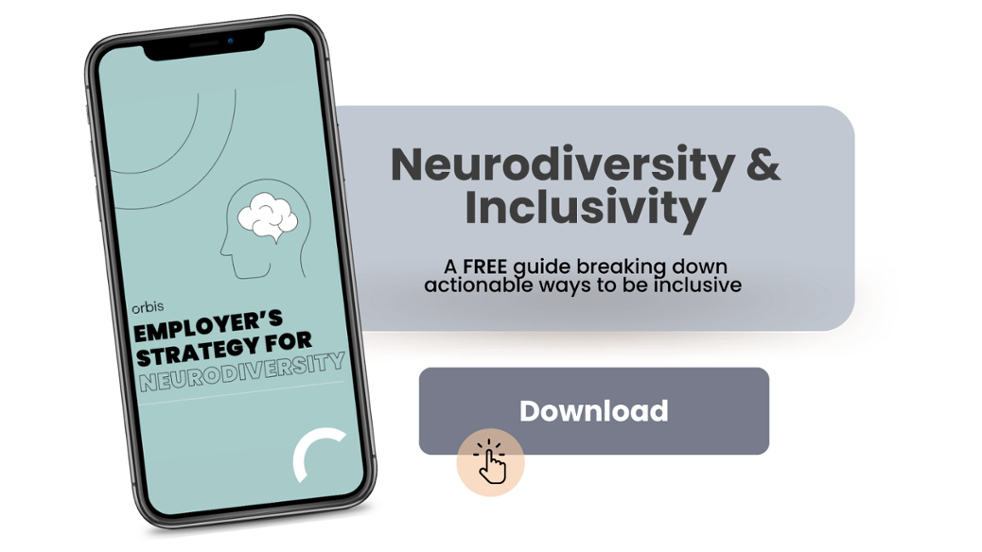
Neurodiversity doesn’t need to be taboo, in fact - it’s pretty common to be surrounded by neurodiverse folks as well as neurotypical folks. The visibility of some conditions (for example ADHD and Autism) can do wonders in many ways, but can also provide a skewed and perhaps sensationalised representation of what it means to have either of these things.
Autism and ADHD, for example, are not the only conditions that are exclusive to neurodiversity - there are over 10 types of neurodiversity which can be dissected in their own way as each is unique and nuanced!
So, instead of looking at neurodiversity as something that can impair (whilst also validating that some conditions can be more severe than others) - neurodiversity can also be your biggest superpower, your biggest asset, and enables you to see the world through a different lens.
The following is an anonymous submission talking about OCD - which falls under the bracket of neurodiversity.
“I was first diagnosed with OCD in 2020, and although I knew something was “different” about me for a long time, I could never really pinpoint what it was. I’d read about OCD 4 years before my diagnosis and resonated with some of the symptoms, but because of a lot of misrepresentation of what OCD is (I thought excessive cleaning) and not a ton of resources beyond bland medical terminology online, I struggled to connect with many stories and found myself clutching at straws.
It was only when I received my diagnosis that I felt like the clouds had cleared and a huge weight had been lifted off my shoulders. In a way, it was validating to know that i wasn’t “going crazy” - but equally, I could then enter therapy and begin to understand the mind I’d been living with the past 24 years. It was a process that enabled me to finally have 20-20 vision in the world, and do a deep dive into my behaviours and relationships.
During the first three months of therapy, I felt like I wouldn’t be able to make it out of the other side - we had to go so far back into everything. My childhood, my traumas, and every intrusive or bad thought I’d ever had. It was exhausting and it felt like reopening a ton of wounds. However, by the time I was discharged from therapy after 6 very intense months, it enabled me to feel balanced for the first time in my life.
My OCD hindered me for so many years of my life. It gave me huge gaps in my memory, made me act out of character and stopped me from being able to do things purely out of fear. I was trapped in my own mind and it made my early 20s incredibly debilitating. However, understanding my mind and understanding my OCD has enabled me to harness it in ways that I could have never imagined - ways that now enable me to (almost) live a life in harmony with my OCD.
I can call myself out
I wouldn’t put myself down as the most self-aware person in the world a few years ago, but since understanding my own mind I’m at less of a war with myself. I know why I do the things I do and instead of being in denial I can call myself out and move on. In my personal life it’s freed me from so much mental torment, healed my relationships with my friends and enabled me to form much deeper connections with people.
In my professional life, I can operate a lot more authentically and don’t live my life in “fight or flight” anymore. I can also communicate when I’m going through a bad time - something I always struggled to do or never articulated in the best way.
I control my mind, not the other way around
My brain is no longer (or at least not always) a messy folder with tons of pieces of paper flying around at all times. I can instil calm in myself, regulate my emotions and have some kind of order in my life. Having control over this enables me to work way more efficiently, and it’s also enabled me to spot my old tendencies in other people.
I’m not embarrassed by it
I didn’t tell my friends or family until after therapy that I had OCD. It made me feel physically sick that I was mentally unwell. Coming from a family with a string of mental health problems I was fearful that I’d be invalidated or that I wouldn’t be able to articulate myself in the right way.
Now? I couldn’t care less. It’s a part of me - whether I was born with it or whether it’s a product of my childhood and environment, what’s the point of fighting something that will never leave me? Being proud of my neurodiversity has enabled me to talk about it publicly, help others, and also write about it on this blog. It’s my superpower because I’m now becoming the resource that I couldn’t find back in 2016 - and I think that’s something really special.”
At Orbis, we have put together a guide for employers on neurodiversity which you can download here.



